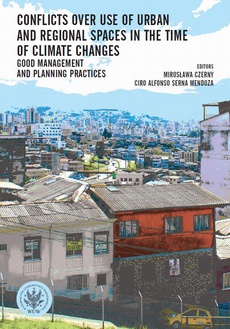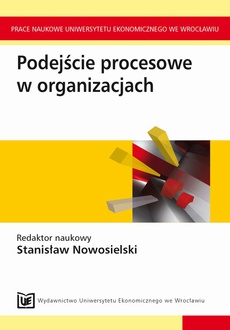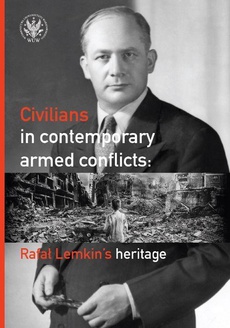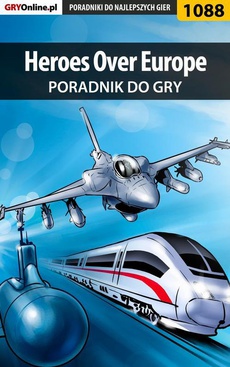POLECAMY
Conflicts over use of urban and regional spaces in the time of climate changes
Good management and planning practices
Redakcja:
Wydawca:
Format:
ibuk
Tereny zamieszkane przez człowieka od zawsze były areną konfliktów. Bardziej uprzemysłowione regiony przyciągają nowych mieszkańców, którzy szukają tu swojego miejsca i możliwości pracy. Nadmierne migracje powodują przeludnienie i brak terenów dla nowego budownictwa, co rodzi napięcia społeczne. Konflikty o wodę, o stały dostęp do energii elektrycznej, zasoby naturalne i dostęp do edukacji to codzienne problemy we wszystkich częściach świata.
Niniejsza publikacja jest kontynuacją tematów poruszanych we wcześniejszych monografiach, które powstały w wyniku wspólnych badań geografów z Polski i Ameryki Łacińskiej, realizowanych w ramach wielu projektów poświęconych kwestiom miast. Ten tom jest pierwszym z dwóch wydanych w 2021 roku i zawiera teksty prezentujące nowe studia przypadków i nowe idee na temat zrównoważonego rozwoju, ryzyka i lokalnego rozwoju w Polsce, Kolumbii i innych krajach Ameryki Południowej.
Publikacja na licencji Creative Commons Uznanie autorstwa 3.0 PL (CC BY 3.0 PL) (pełna treść wzorca dostępna pod adresem: http://creativecommons.org/licenses/by/3.0/pl/legalcode).
*********
The areas inhabited by man have always been an arena of conflict. The more developed regions attract new residents, who seek their place and work there. Excessive migration causes congestion, lack of space for new buildings and hence conflicts. The city is a specific area of conflict - over land, over access to infrastructure, over housing, over jobs. Excessive urban development, which exceeds the limits of efficient area management, contributes to the deterioration of living conditions – transport chaos, social segregation, inefficient public services, air pollution. Conflicts over water, over sustainable electricity, over resources, over access to education are also everyday topics in all parts of the world. We present our readers with a monograph devoted to some of the above-mentioned problems, which are common for Poland and for Latin American countries.
This publication is a continuation of the topics discussed in earlier monographs, which were the result of joint research of Polish and Latin American geographers within many projects dedicated to urban issues. Academics of the Faculty of Geography and Regional Studies of Warsaw University have been lecturers at doctoral studies in urban and regional sustainable development and post-doctoral studies in Earth and Environmental Science at the University of Manizales in Colombia (Doctorado en Desarrollo Sostenible y Posdoctorado en Ciencias de la Tierra y el Medio Ambiente). Doctoral students and lecturers from the University of Manizales have visited Poland many times in joint symposia and workshops). In 2017 a Polish-Colombian monograph in Spanish was published in Colombia and in 2018 two scientific monographs, both in Spanish and English, were brought out by the University of Warsaw Press. This volume is the first of the two published in 2021 and contains only English texts on sustainable development, risk and local development in Poland, Colombia and some other South American countries.
The publication is licensed under the Creative Commons Attribution-Share Alike 3.0 Poland license (CC BY 3.0 PL) (full license available at: http://creativecommons.org/licenses/by/3.0/pl/legalcode).
*********
Prof. dr hab. Mirosława Czerny (ORCID 0000-0002-8216-9912) – geograf, profesor zwyczajny w Instytucie Studiów Regionalnych i Globalnych, kierownik Katedry Geografii Miast i Planowania Przestrzennego na Wydziale Geografii i Studiów Regionalnych Uniwersytetu Warszawskiego, kierownik Zakładu Geografii Rozwoju i Planowania Przestrzennego. Jej obszar zainteresowań to kraje rozwijające się, a szczególnie Ameryka Łacińska. W krajach tego regionu przebywała wielokrotnie jako stypendystka, a następnie w sumie ponad sześć lat była wykładowcą na uniwersytetach w Meksyku, Peru, Kolumbii, Argentyny, Brazylii, Wenezueli, Kostaryce i na Kubie. W ramach realizowanych projektów badawczych współpracowała z ośrodkami badawczymi w Chile, Ekwadorze, Paragwaju i w krajach Ameryki Środkowej. Badania nad krajami rozwijającymi się prowadziła na Uniwersytecie w Tybindze (jako stypendystka Fundacji Alexandra von Humboldta), w Oksfordzie (w ramach stypendium PHARE) oraz na wielu uniwersytetach hiszpańskich, niemieckich i angielskich.
Dwukrotnie prowadziła semestralne cykle wykładów na Uniwersytecie w Moguncji oraz cykle wykładów na Uniwersytecie Castilla-La Mancha w Albacete i na Universidad Complutense de Madrid. Wielokrotnie też była zapraszana jako wykładowca przez Autonomiczny Uniwersytet Stanu Meksyk w Toluce.
Prace naukowe prof. Mirosławy Czerny poświęcone są zagadnieniom niedorozwoju, ubóstwa, zacofania wsi, dzielnicom marginalnym w wielkich miastach, planowaniu regionalnemu i lokalnemu, rozwojowi wielkich metropolii, rozwojowi zrównoważonemu, konfliktom politycznym i społecznym, społeczeństwu ryzyka. Za wkład w badania nad Ameryką Łacińską Universidad Nacional San Agustin de Arequipa w Peru nadał jej w 2007 roku tytuł doktora honoris causa, a w 2013 roku została uhonorowana medalem towarzystwa geograficznego w Limie w rocznicę 125-lecia jego istnienia. W tym samym roku macierzysty Wydział uhonorował ją także Medalem im. Jerzego Kondrackiego.
Dr Ciro Alfonso Serna Mendoza (ORCID 0000-0003-9192-9771) – dyrektor ds. Zrównoważonego Rozwoju na Uniwersytecie w Manizales w Kolumbii.
| Rok wydania | 2021 |
|---|---|
| Liczba stron | 304 |
| Kategoria | Publikacje darmowe |
| Wydawca | Uniwersytet Warszawski |
| ISBN-13 | 978-83-235-4846-1 |
| Numer wydania | 1 |
| Informacja o sprzedawcy | ePWN sp. z o.o. |
Ciekawe propozycje
Spis treści
| Introductory words 7 | |
| Mirosława Czerny, Ciro Alfonso Serna Mendoza | |
| I. The city as an arena of conflicts and negotiations The territorial ordering in the metropolitan area of South-Central Caldas in the contexts of climate change 13 | |
| Jaime Mejía Gutiérrez | |
| Commemoration of destruction and celebration of reconstruction. The evolution of Rotterdam’s approach to the city’s history 1945–2019 | 30 |
| Dominik Różewicz | |
| Recreational public spaces in the context of suburbanization. Polish case study | 43 |
| Dorota Mantey | |
| Allotments in urban space – modern components of city greenery or communist relics? An analysis of the issue as exemplified by Warsaw | 58 |
| Mirosława Czerny, Patrycja Starzec | |
| Public spaces in urban policy: evolution of approaches on the example of a post-socialist city | 85 |
| Sylwia Dudek-Mańkowska, Mirosław Grochowski | |
| System transformation and what happens next? Post-industrial heritage in Warsaw – an assessment attempt | 101 |
| Agnieszka Dudzińska-Jarmolińska, Magdalena Fuhrmann | |
| II. The region as an arena of conflicts and negotiations Social construction of innovative and competitive territories in Colombia 125 | |
| Luis Alfredo Muñoz Velasco, Sylwia Kulczyk | |
| Disaster-safe territories from land management | 145 |
| Tulia Elena Hernández Burbano, Javier Gonzaga Valencia Hernandez | |
| Trust in congress and the sustainable development of Colombian territory | 155 |
| Hernando Gil Tovar, Sylwia Kulczyk | |
| Energy efficiency as a sustainable development strategy | 178 |
| Hanna Orjuela, Duván Ramírez | |
| A look at the importance of the economic valuation of the regulation services of natural wetlands | 196 |
| Christian Alejandra Vidal Sierra, Ciro Alfonso Serna Mendoza, Coral Jazvel Pacheco Figueroa | |
| Water governance and bio-accounting | 206 |
| Ciro Alfonso Serna Mendoza, Eutimio Mejia Soto | |
| Future perspectives of sustainable development: an innovative planning approach to water in the eastern Colombian region | 219 |
| Roberto Saavedra Ardila, Jorge William Arboleda Valencia | |
| III. Society, education and possibilities in contestation spaces Social development and social movements | 243 |
| Ciro Alfonso Serna Mendoza, Diana Sofía Serna Giraldo, Diego Hernández García | |
| Rural youth migration from a sustainable perspective | 251 |
| Claudia Jurado Alvarán | |
| Bio-accounting: an alternative to the challenges of the accounting science | 268 |
| Víctor Julio Balanta Martínez, Ciro Alfonso Serna Mendoza | |
| Indigenous populations of Costa Rica in educational discourse. A review of “manual para la mediación cultural” | 284 |
| Katarzyna Dembicz | |

























